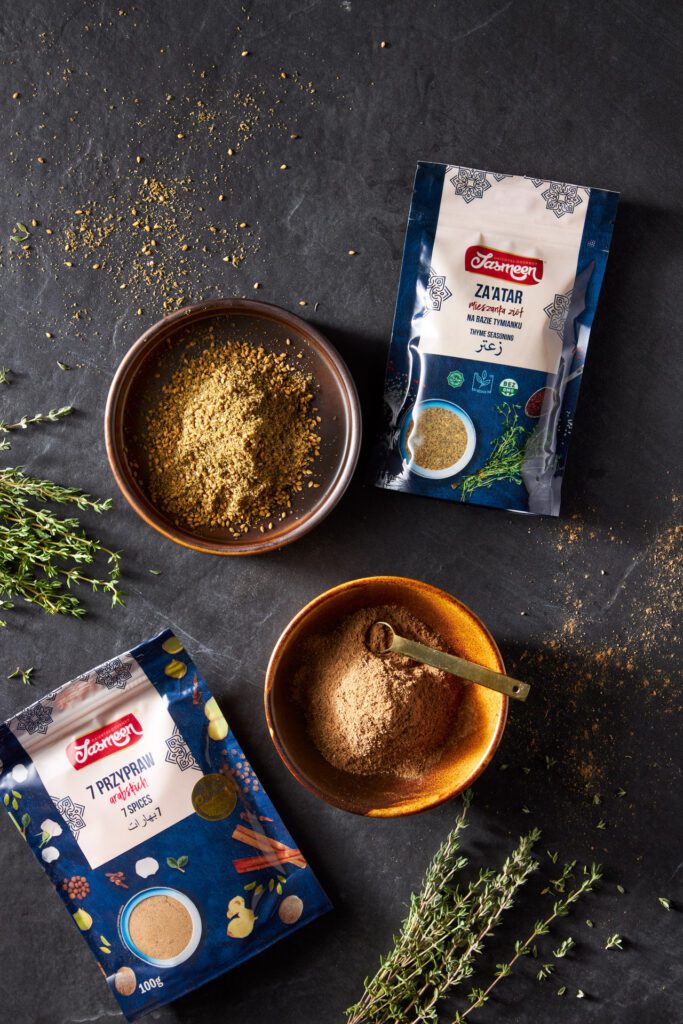What is Middle Eastern cuisine like? Undoubtedly diverse! In addition, aromatic, slightly exotic and extremely intriguing.
Among the many reasons for this state of affairs, we can point out primarily the terrain and cultural and religious customs of the Middle Eastern countries. This cuisine has its roots in countries located on the border of Asia, Africa and Europe. Below are 5 rules of Middle Eastern cuisine. Thanks to them, you too will be able to prepare oriental dishes to enjoy them with your loved ones in the comfort of your home! Let’s start!
The main ingredients of Middle Eastern cuisine include:
Thanks to this mixture, oriental dishes have an extraordinary taste. Middle Eastern cuisine seems to be a gastronomic paradise for both vegetarians and meat eaters. What is crucial to obtaining tasty dishes is the freshness and great quality of the ingredients from which they are prepared. These are a large part of the success of oriental cuisine, which has won the hearts (and stomachs) of people almost all over the world.

Spices are an aromatic addition to dishes that have been used in all types of cuisine for thousands of years. They enrich the taste, smell and colour of dishes, which is why they are essential in every home – even if you are not a culinary enthusiast. Remember that with the right spices you can add character to many dishes, which the inhabitants of the Middle East are well aware of!
Some of the most famous spice mixtures that are commonly used in oriental cuisine are za’atar and 7 Arabic spices. In Jasmeen za’atar you will find, among others, thyme, ground sumac, durum wheat and roasted sesame seeds. They are the key to obtaining an extraordinary, slightly sour taste. In turn, our slightly spicy, spicy mixture of 7 Arabic spices includes: cinnamon, galangal, rose buds, allspice, cloves, ginger, nutmeg and cardamom.
If you want to prepare dishes with an oriental touch, both of these products will be an excellent choice!
Want to know what dishes you can add za’atar to? You can read more about it here. And if you are interested in 7 Arabic spices, check out our recipes using them.


Want to get the most flavor out of your Middle Eastern-style dishes? Opt for fresh herbs! Oriental countries are known for their love of them. The best example here is the Lebanese tabbouleh salad, which consists of: tomatoes, green cucumber, onion, bulgur or couscous, and lots of parsley and mint.
The combination of aromatic spices with fresh herbs gives dishes a distinct and spicy flavor. Coriander, thyme, parsley, mint – thanks to them you can create healthy, fresh, colorful, and above all delicious meals based on those prepared by the inhabitants of the Middle East. Your home pantries cannot do without them!
In Middle Eastern cuisine, alongside expressive spices and fresh herbs, legumes are the most popular. Thanks to their high protein content, legumes are an excellent alternative to animal products for both vegetarians and vegans, as well as for people who want a change on their plate or limit their meat consumption. Dishes prepared with legumes are substantial and very filling.
Chickpeas, known in Poland, are an essential ingredient in a thick and filling paste with the addition of tahini, or hummus, which is undoubtedly the king of Middle Eastern cuisine.
Fava beans are also a popular legume in the Orient. They are the basic ingredient of the Egyptian dish Foul Mudammas, which consists of crushed fava beans or broad beans and tomatoes, seasoned with cumin, garlic and olive oil.


Eating in the Middle East is a real ritual, and its inhabitants approach meals with great respect, treating this activity almost like a holiday. Remembering the culinary traditions of a given region allows us to look at our habits with a fresh eye and enjoy food on many levels, including the social one.
Time spent eating has cultural significance in the Middle East, because it brings people together – distant and close family members, friends and acquaintances, and even neighbors. That is why enjoying oriental dishes should be accompanied by… a meeting.
Traditional dishes from this region of the world are also enjoying growing popularity in Poland. Middle Eastern specialties are characterized by a unique taste, which can be achieved by following a few simple rules that you have just learned. Combine tradition with a pinch of exoticism and you will experience a true wealth of flavors and aromas!
PRODUCENT:
LEVANT FOODS Sp. z o.o.
ul. Pocztowa 15 B (wjazd od ulicy Kruczej)
62-080 Tarnowo Podgórne
info@levant.pl
tel. +48 61 88 66 600
fax +48 61 88 66 601